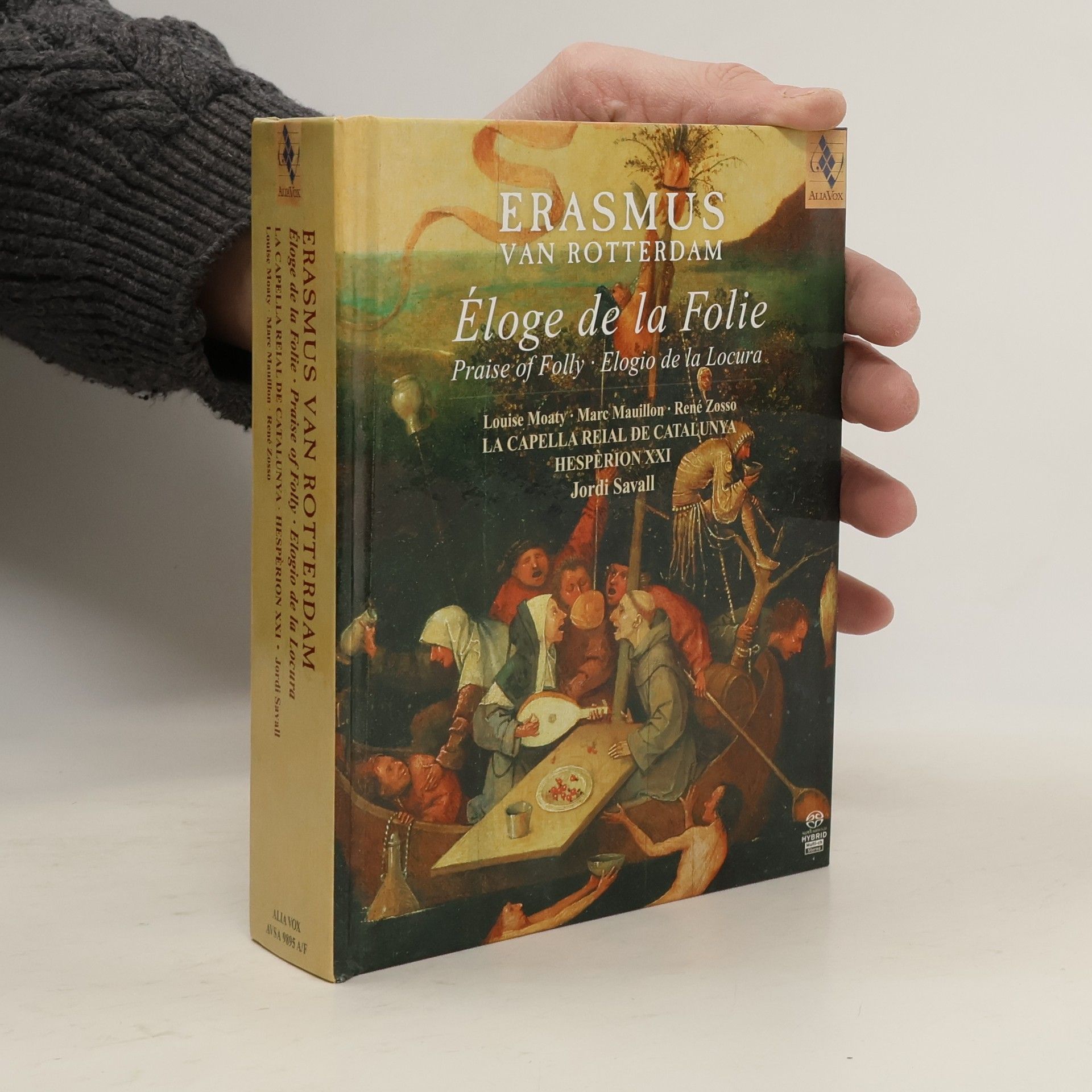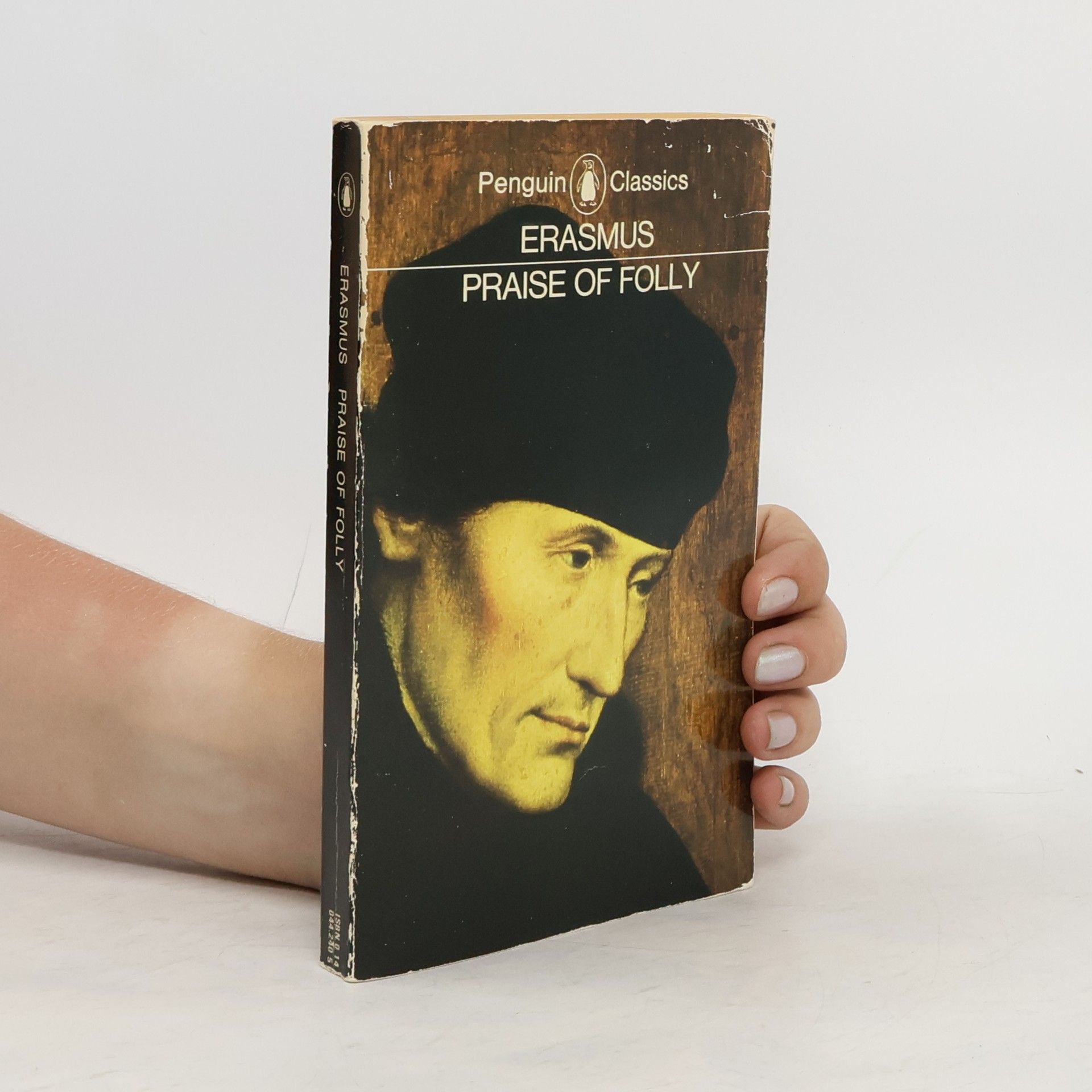Erasmus Rotterdamský Livres
Érasme de Rotterdam, acclamé comme le "Prince des Humanistes", fut un érudit de la Renaissance néerlandais, réputé pour sa prose latine pure. Utilisant des méthodes textuelles humanistes, il produisit de nouvelles éditions influentes du Nouveau Testament en latin et en grec qui façonnèrent la Réforme. Bien que critique des abus de l'Église catholique et prônant la réforme, il maintint une distance avec les réformateurs radicaux, défendant une voie modérée qui mettait l'accent sur le libre arbitre et un profond respect pour la foi traditionnelle. Sa position intellectuelle cherchait un juste milieu, décevant souvent ceux qui se trouvaient aux extrêmes.







Praise of Folly and Pope Julius Barred from Heaven
- 336pages
- 12 heures de lecture
The goddess Folly gives a speech, praising herself and explaining how much humanity benefits from her services, from politicians to philosophers, aristocrats, schoolteachers, poets, lawyers, theologians, monarchs and the clergy. At the same time, her discourse provides a satire of Erasmus's world, poking fun at false pedantry and the aberrations of Christianity. Woven throughout her monologue, a thread of irony calls into question the goddess's own words, in which ambiguities, allusions and interpretations collide in a way that makes Praise of Folly enduringly fascinating.
One of the most important books of the 'advice-to-princes' published in the Renaissance.
The final volume of the Correspondence subseries presents a collection of letters from Erasmus during his last years, offering insights into his thoughts and experiences as he navigated the complexities of his later life. This compilation highlights his reflections on personal, philosophical, and theological matters, showcasing the evolution of his ideas and relationships. It serves as a valuable resource for understanding the legacy of one of the Renaissance's most influential figures.
The narrative explores the final thirteen months of Erasmus' life, highlighting his deteriorating health alongside the development of his renowned work, On Preparing for Death. This period captures both personal struggle and intellectual achievement, offering insights into his thoughts on mortality and legacy.
Erasmus In Praise Of Folly
With Portrait, Life Of Erasmus, And His Epistle Addressed To Sir Thomas More
- 132pages
- 5 heures de lecture
Exploring the themes of human folly and the critique of societal norms, this work presents a satirical examination of various aspects of life, including religion, education, and politics. It features a portrait of Erasmus, alongside a biographical account of his life, highlighting his influence during the Renaissance. Additionally, the book includes an epistle addressed to Sir Thomas More, showcasing the friendship and intellectual exchange between the two scholars. This combination of humor and philosophical insight makes it a significant historical text.
The classic work of the Renaissance humanist satirizes the organized Christian Church of the sixteenth century.
Praise of Folly (Royal Collector's Edition) (Case Laminate Hardcover with Jacket)
- 80pages
- 3 heures de lecture
Folly, the personification of foolishness, embarks on a self-congratulatory journey, claiming that her presence makes life vibrant and entertaining. Through her perspective, the narrative delivers a sharp satire targeting the superstitions and customs prevalent in European society and the Western Church, critiquing their absurdities and highlighting the folly inherent in human behavior.
Focusing on the sixteenth-century debate over biblical translations, this volume explores the tensions between scholastic and humanist perspectives. It delves into the intellectual conflicts sparked by differing interpretations and approaches to scripture, highlighting the significance of these discussions in shaping theological and educational landscapes of the time.
